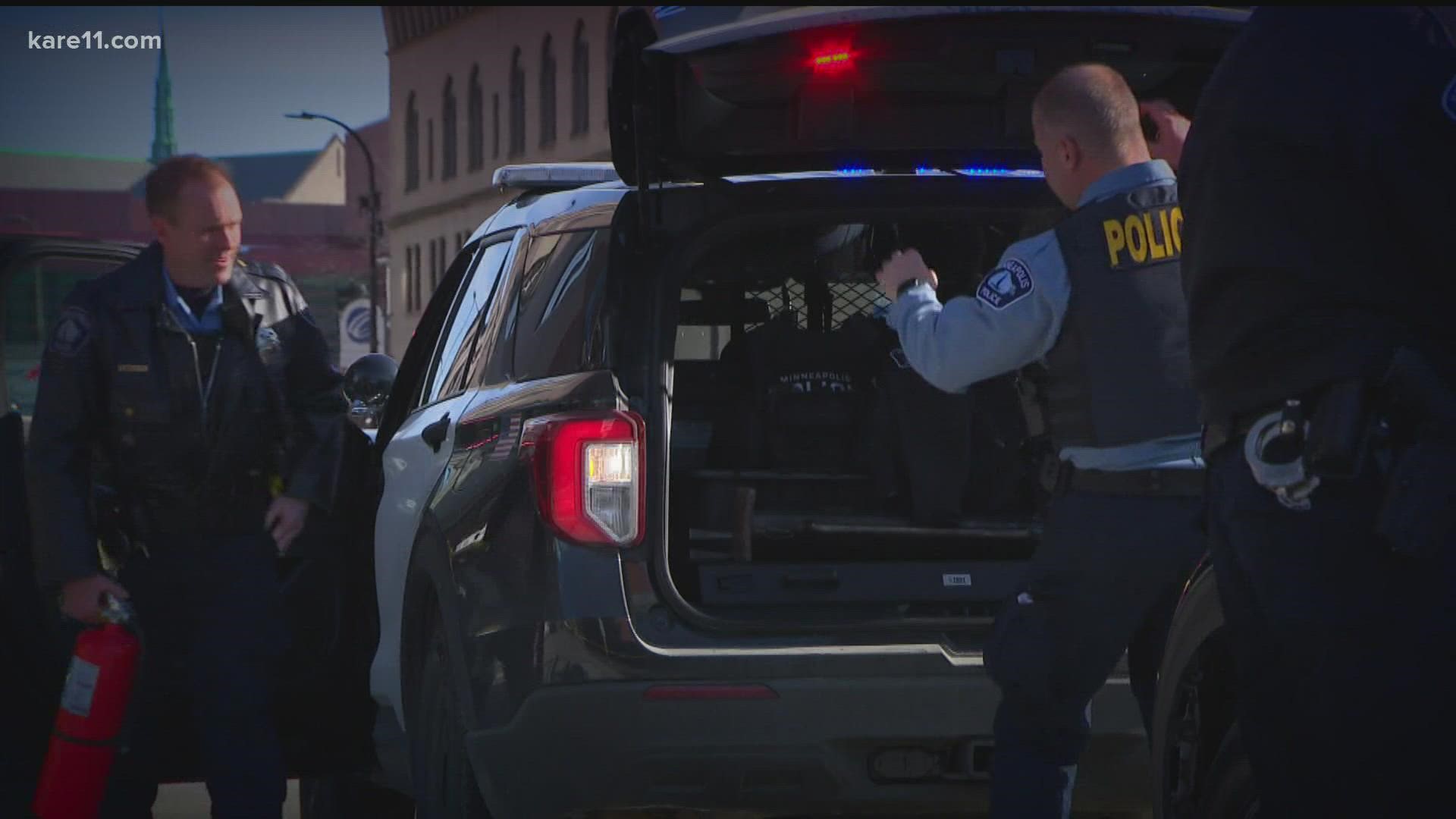MINNEAPOLIS — The Minnesota DFL has announced Monday afternoon that they will introduce legislation on Tuesday to ban no-knock warrants statewide in response to the deadly police shooting of Amir Locke.
The announcement comes on the heels of Minneapolis city leaders' meeting on the use of no-knock warrants.
Minneapolis City Councilmember Jeremiah Ellison led a committee meeting on no-knock warrants in the city. During the meeting, Mayor Jacob Frey said that he does not plan on rushing to any policy changes and had no specific timeline for when there would be permanent policy changes to the use of no-knock warrants.
Frey also explained the differences between this moratorium on no-knock and no-announce warrants and his previous policy changes is that this moratorium will prevent them being requested, issued and executed.
In his November 2020 police policy changes, Frey only ended the practice of police entering unannounced, even with a no-knock or no-announce warrant, barring dangerous circumstances. Minneapolis police could still get either type of warrant, but they now had to announce what their presence and purpose were before entering regardless of which one they used.
City Councilmember LaTrisha Vetaw asked Frey why he didn't out-right ban or end no-knock warrants in 2020, and Frey explained that those policy changes only focused on police announcing their presence.
"We believed at the time, the most important piece was the announcement itself," Frey said. "Clearly, I think in addition to the announcement, there's room to go even further."
During the Minneapolis Policy and Government Oversight Committee meeting, University of St. Thomas Professor Rachel Moran explained explained the history of no-knock warrants.
"No knock warrants - they became popular back during the Nixon administration as the war on drugs began," Moran explained.
She also explained that from 2010 and 2016, 94 people were killed during no-knock warrant executions. Of those, 13 were police officers.
"So the idea that they protect police officers is also really questionable," Moran added.
She also said the policy change announced by Mayor Frey back in November 2020 was erroneously named as a ban.
"It was not a ban," Moran said. "They could still do them without knocking, but were required to announce their presence before entering the residence."
St. Thomas law student Sarah Murtada also spoke during Monday's meeting. Murtada, who studies the homicide clearance rates of no-knock warrants, brought statistics that no-knock warrants do not yield better homicide solve rates.
She said St. Paul hasn't had a ban on no-knock warrants, but hasn't used them since 2016, and had a clearance rate of 91%. In Minneapolis, the clearance rate was 37%.
"Neither city has had an officer killed by violence in 17 years, so we're looking at these two cities, one that uses no knock warrants and one that doesn't. No changes in officer safety nor clearance rates in solving more crimes," she explained.
In terms of what the city council can do at this point, Minneapolis Ward 6 Councilmember Jamal Osman asked, "We see how dangerous this practice is, we have seen the data, we've seen the presentation, is there anything the council can do? If that is an amendment, if that is an ordinance that we can do, to stop this practice?"
The chair of the committee, councilmember Jeremiah Ellison, answered by saying, "I think we need to be discussing those questions, I don't want to shut down good conversation. I do want to say, it's not the exact topic at hand, and we stay to the topic at hand, we have a series of presenters who are here to offer their expertise and insights. We may learn exactly what we need to know as we are considering how we act next, whether that be passing our own policy, or acting with the mayor."
Prior to the policy changes in 2020, Frey says the city had no set policy on the use of no-knock and no-announce warrants. At the time, there was only state law that allowed either.
Frey added that the moratorium on no-knock warrants will last until there are concrete policy changes.
Moran said the city is free to make changes to its own no-knock warrant policies, and that there are no state laws barring that change from happening.
Watch more local news:
Watch the latest local news from the Twin Cities in our YouTube playlist:

